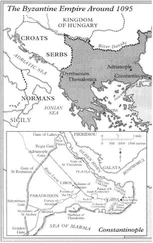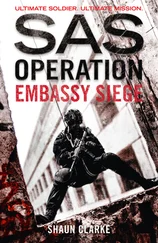Tom Harper - Siege of Heaven
Здесь есть возможность читать онлайн «Tom Harper - Siege of Heaven» весь текст электронной книги совершенно бесплатно (целиком полную версию без сокращений). В некоторых случаях можно слушать аудио, скачать через торрент в формате fb2 и присутствует краткое содержание. Жанр: Исторический детектив, на английском языке. Описание произведения, (предисловие) а так же отзывы посетителей доступны на портале библиотеки ЛибКат.
- Название:Siege of Heaven
- Автор:
- Жанр:
- Год:неизвестен
- ISBN:нет данных
- Рейтинг книги:5 / 5. Голосов: 1
-
Избранное:Добавить в избранное
- Отзывы:
-
Ваша оценка:
- 100
- 1
- 2
- 3
- 4
- 5
Siege of Heaven: краткое содержание, описание и аннотация
Предлагаем к чтению аннотацию, описание, краткое содержание или предисловие (зависит от того, что написал сам автор книги «Siege of Heaven»). Если вы не нашли необходимую информацию о книге — напишите в комментариях, мы постараемся отыскать её.
Siege of Heaven — читать онлайн бесплатно полную книгу (весь текст) целиком
Ниже представлен текст книги, разбитый по страницам. Система сохранения места последней прочитанной страницы, позволяет с удобством читать онлайн бесплатно книгу «Siege of Heaven», без необходимости каждый раз заново искать на чём Вы остановились. Поставьте закладку, и сможете в любой момент перейти на страницу, на которой закончили чтение.
Интервал:
Закладка:
‘Is Sigurd all right?’
‘Barely.’ I saw Anna gasp. ‘He suffered a blow to the head, and has not risen since. He has a fever. You must see him.’
‘What can I do?’ She opened her empty hands. ‘I cannot leave this cloister, much less the city.’
‘You have to,’ I repeated stubbornly.
‘I can’t.’
‘I could bring him here.’
She stamped her foot in anger. ‘Is that a joke? If Sigurd is so weak, the plague would kill him the minute he looked at Antioch. He must manage without me.’
We stared at each other across the square. The moonlight filled the space between us like glass.
‘If I could, of course I would be with Sigurd this instant,’ she said softly. ‘But I do not have that choice. I chose to come to Antioch and I came freely, because of you. Because I loved you.’ She flicked her hand to shush my embarrassed protest. ‘Now that choice is made, we are each as helpless as the other. We are slaves to powers we cannot defy.’
More tears were tumbling down her cheeks and her eyes were dark with sadness. I longed to run across the courtyard, to hug her to me and crush away the distance between us. But the guard’s spear was steady, hovering like a wasp at the edge of my gaze.
‘The emperor’s new envoy has come,’ I said at last.
Anna brushed away a tear, rubbing her cheek with a loose lock of hair. ‘Then you’re free to go.’
‘He has ordered me to Egypt.’
With all the passion wrung from it, my soul had become dry and calloused. I related Nikephoros’ orders without emotion. Anna listened quietly until I was finished.
‘Will you go?’
I hesitated. I had come there that night with wild plans of escape burning in my heart: I would take Anna out of Antioch, she could heal Sigurd in a secret place until he was well, and then the three of us would make our way back to Constantinople. It was a pleasant dream — but impossible. It was as Anna had said: we had made our choices, or had them forced upon us, and now we would suffer the outcomes.
‘I will go to Egypt,’ I said. ‘Nikephoros has given me little alternative.’ And you have made sure of it , I did not say. To stay in Antioch, waiting to see whether Sigurd’s wounds killed him before the plague killed Anna — it would be like being milled between boulders. Against that, Egypt was almost an enticing prospect.
Anna nodded, as if she had known my decision before I said it.
‘Travel safely,’ she said simply. Her tears had dried up, and her face was calm again.
I could not bring myself to turn away, but stared at Anna as though — by the force and duration of my gaze alone — I could communicate all I felt. She matched my gaze, unyielding. Pity, kindness and desperate sorrow mingled in her face; I thought she might collapse into tears again, and I would have followed suit if she had, but she did not.
Without a word of farewell, she half-raised a hand in mock salute and turned away. The guard followed her as she disappeared between the pillars into the dark cloisters.
9
We sailed for Egypt the next day. I had never been on a ship before, except to cross the few hundred yards of the Bosphorus, but I had always assumed I would hate it. For some reason, I did not. Perhaps I felt so wretched that the turbulent deep beneath our keel lost its terror, or perhaps the suspension of all cares and duties, forced by the confines of the ship, calmed me. It was as if I had been plucked out of my life, cut free of the ties and obligations that held me there, and set adrift upon the blank canvas of the sea. For the first time in months, or even years, I had nothing to do. I sat in the shade of the turret that commanded the centre of the ship and watched the crew, as idle and superfluous as the cat who ate the galley scraps.
Apart from the crew, we were nineteen passengers: Nikephoros and his attendants; a priest; an honour guard of ten Patzinaks who spent most of their time being seasick; one Varangian and myself. The Varangian was Aelfric, the man who had led us out of the burning monastery. The rest of his company had remained with Nikephoros’ colleague, the eunuch, who had the unenviable task of trying to persuade the Frankish princes to resume their march once the plague subsided.
As for Nikephoros, he did not find the same solace I did in the ship. He had commandeered the captain’s quarters at the ship’s stern, and though it must have been a dark and humid room he rarely ventured out. When he did, he had his servants erect a white silk canopy on the foredeck; he would sit there in regal isolation and watch the waves, or sometimes compose long documents, many pages in length, on his ivory writing desk. Though I was nominally his secretary, he never asked me to write them out or confided their contents to me.
One afternoon, two days out of Saint Simeon, I gained some insight into his foul humour. I was sitting in the turret’s shadow, playing with a rope-end and fretting about Anna, when Aelfric came and sat beside me. That in itself was unusual, for he was a quiet man who mostly kept to himself, but I welcomed him. He was small for a Varangian, though large by any other standard. His lean face bespoke a watchful intelligence, and you could see him weighing each word thrice over before he spoke it.
‘I’ve found out why Nikephoros is so grumpy,’ he announced.
I looked up from the frayed fibres I had teased apart. ‘Why’s that?’
‘The emperor’s not pleased with him.’
‘How do you know?’
‘I heard it from one of his slaves. He made the wrong friends at court. He was an ally of the dead chamberlain, Krysaphios.’ Aelfric squinted at me. ‘You knew him.’
‘I did.’ I had witnessed his death — indeed, I had contributed to it. ‘I’m surprised the emperor would trust this mission to someone associated with that faction.’
‘Are you? Why not? If he’s honest, he’ll have to try twice as hard to prove it, and if he’s not honest he’ll be well out of the emperor’s way.’
Another more unpleasant aspect struck me. ‘And if the embassy goes wrong, or if our ship is lost at sea, Nikephoros will be conveniently removed from the court.’
‘No wonder he scowls so much.’
‘The Franks sent ambassadors to the Fatimids once,’ I remembered. ‘Five months ago. I was at the council where the princes discussed it.’
‘What became of them?’
I shrugged. ‘They never returned.’
We put in at Cyprus to take on supplies. The harbour was choked with commerce: it felt as if half the imperial grain fleet must be there, together with transports and galleys so thick you could almost have walked across the bay on their decks. Every deck, wharf, jetty and gangway was piled high with the material of war: barrels of fish, bales of hay, live pigs to feed armies and iron pigs to feed the blacksmiths’ forges. In one corner of the port, makeshift fences had been erected to pen in the vast herd of horses and mules who waited to be embarked for Antioch. The greater part of the goods, though, were inbound, destined to sit in stores and warehouses until the Army of God moved south. It was a vast operation, the fruits of the empire all gathered together to feed the campaign, and I began to realise how far afield the tremors of our war had reached.
From Cyprus we sailed south and then south-east, running before the wind. Now it was the sailors who worked while the rowers rested, and a new urgency gripped the ship. Even with a good breeze behind us, the air seemed to be thickening day by day. Whenever they were off duty the men would gather near the bow and stare out over the waves, waiting for the land to appear. Some of them reported seeing great fish many times larger than a man swimming beside us, though I never saw them.
Читать дальшеИнтервал:
Закладка:
Похожие книги на «Siege of Heaven»
Представляем Вашему вниманию похожие книги на «Siege of Heaven» списком для выбора. Мы отобрали схожую по названию и смыслу литературу в надежде предоставить читателям больше вариантов отыскать новые, интересные, ещё непрочитанные произведения.
Обсуждение, отзывы о книге «Siege of Heaven» и просто собственные мнения читателей. Оставьте ваши комментарии, напишите, что Вы думаете о произведении, его смысле или главных героях. Укажите что конкретно понравилось, а что нет, и почему Вы так считаете.










